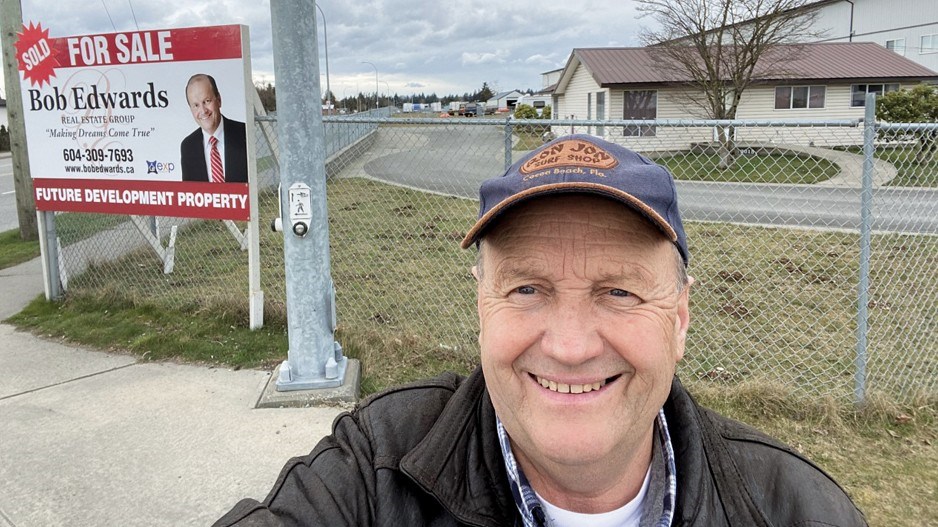Veteran Fraser Valley commercial real estate agent Bob Edwards got a fast lesson in land demand when he listed a one-acre agricultural parcel that has the potential to be zoned industrial or commercial in West Abbotsford.
In less than 24 hours after advertising the listing in February, Edwards received 99 calls from potential buyers, along with at least 50 text messages and 50 emails.
The four top bidders all presented no-subject offers, and the land sold for the full asking price of $2,988,800, according to Edwards, agent/owner at Abbotsford’s eXp Realty.
“I was offered over $3 million, but that buyer had a number of subjects,” Edwards said.
The land, which would require rezoning to industrial or commercial, sold for well above its BC Assessment Authority value of $1.67 million.
Land was the hottest commercial real estate sector in 2020 across B.C.’s Lower Mainland, rising 28.7% from a year earlier to $4.28 billion, and accounting for nearly half the value of the entire market. The momentum continued into 2021.
Industrial sales (on assets valued at more than $5 million) hit $575 million in the first three months of 2021 alone, according to Avison Young’s Metro Vancouver Industrial Overview, released May 3.
While residential has traditionally been the region’s big driver for land sales, agents say residential speculation is cooling, due to the record-high prices for both land and building materials.
Lumber costs, for example, are about 340% higher than a year ago.
Ryan Beedie, president of developer Beedie, which builds both industrial and residential projects, said land is the most costly aspect of industrial construction, while building material prices dominate the costs to build residential.
Varing Group president Joe Varing said the frantic pace of land assemblies, sales and multi-unit home development in the Fraser Valley is slowing.
“The days of the turn and burn are ending,” Varing said, referring to the process of acquiring land, getting it rezoned for higher-density residential development and selling it, a process that could take 12 to 36 months. “There was a fear of missing out.
“Residential land is quite expensive now, and buyers are getting squeezed in the margins,” he said, noting that some investors are now buying land on long horizons of 10 to 15 years, based on municipalities’ official community plans.
But industrial and commercial land sales appear on a different trajectory as investors jostle for position.
“The shortage of industrial space available for lease combined with a near record-low cost of capital have driven many owner-occupiers and investors to heavily invest in B.C. industrial properties,” Avison Young noted.
Investors are drawn to the country’s highest industrial lease rates and rapidly appreciating commercial land values.
An example is a former gas station at the corner of West 41st Avenue and Cambie Street in Vancouver. Never rezoned – an application is pending for a mixed-use project - the 0.36-acre site was bought in 2014 by Coromandel Properties Ltd. for $15.8 million. It sold in 2020 for $40 million, the equivalent of nearly $120 million per acre. •




